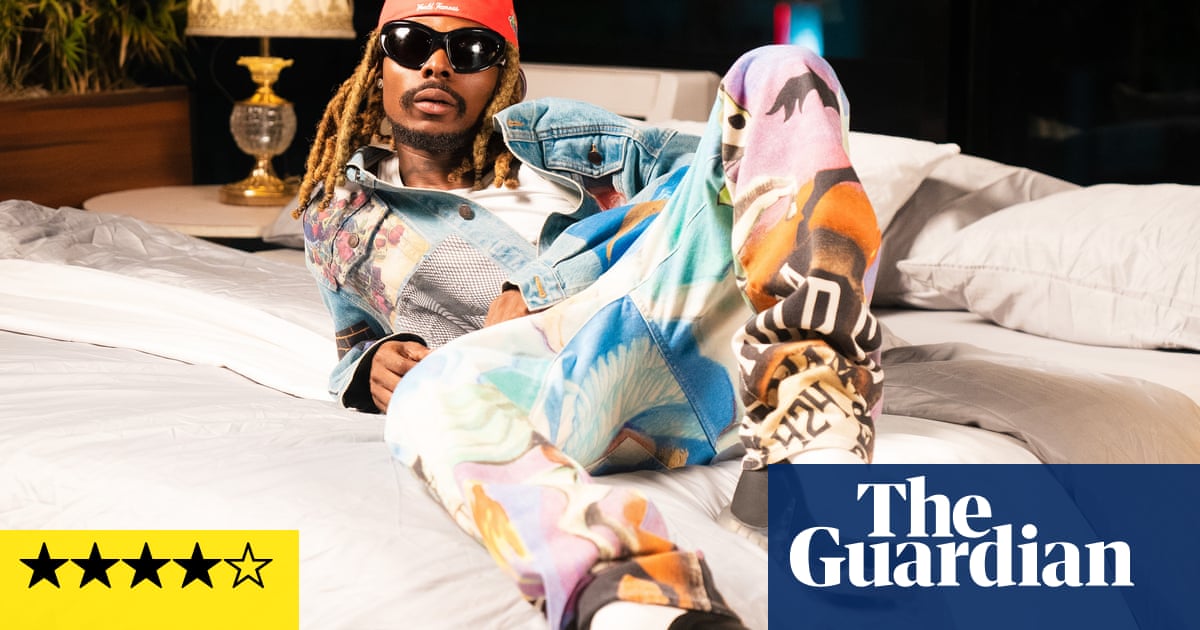
ast year, Doves played a series of comeback gigs after nearly a decade on hiatus. The trio seemed startled by the response. “It’s sold out!” frontman Jimi Goodwin remarked from the stage of the Royal Albert Hall. “This is incredible.”
You can understand his surprise: the world of rock and pop music feels noticeably different from the one Doves departed, where Spotify had just launched, British indie bands routinely topped the album charts and the only UK rap that broke the mainstream was cravenly poppy. Then again, why wouldn’t they be welcomed back? They didn’t split due to falling sales or widespread indifference, and they spent the 00s occupying a curious space of their own within British alt-rock. They were devoid of the flashy image-consciousness of the indie bands who defined that era – and nearly a decade older than them.
With the benefit of hindsight, perhaps Doves’ success rested on providing the same function for the acid house generation as the singer-songwriters of the 70s were reputed to have done for the boomers: offer a soundtrack to lives changing, to the thirtysomething moment when you can no longer pass yourself off as young, when the urge for hedonism is overwhelmed by the more mundane and pressing daily business of adulthood. Something about their dynamics and their use of electronics underlined that this was guitar music made by former ravers: before they were Doves, the trio were Sub Sub, authors of the 1993 disco house smash Ain’t No Love (Ain’t No Use). Even at their most upbeat, their songs seemed wistful and melancholy: “You turn around and life’s passed you by,” offered the ebullient There Goes the Fear. “In satellite towns, there’s no colour and no sound,” complained the protagonist of Black and White Town, as if rueing a move based on nearby schools rated outstanding by Ofsted.
The ability to hit a particular demographic right in what Carousels, the opener of Doves’ new album, calls the “feels” would certainly account for the warmth that greeted their return. And there’s more of the same on The Universal Want, or at least something similar. Despite a couple of tracks that date back to the band’s first incarnation, the lyrics largely seem to pick up 10 years on, more careworn than ever – an impression compounded by Goodwin’s voice, which has taken on an appealingly rough patina in the intervening decade – depicting the kind of concerns that tend to beset people as their 40s slide into their 50s. Prisoners seems to wrestle with the problems of maintaining a long-term relationship, Cathedrals of the Mind with either the premature death of a contemporary or the shock that accompanies the passing of a public figure that’s been there throughout your life; you could view its lyrics as being about David Bowie.
For Tomorrow sounds haunted by the difficulty of maintaining the belief that things will get better in the face of increasing tranche of life experience that suggests they’ll get worse. “We will breathe again, no more sorrow we will love again,” sings Goodwin, adding dolefully: “I hope.”
It’s all heartfelt, well done and audibly the work of a band more interested in consolidating their original audience than attempting to lure the teenagers away from Joel Corry and TikTok. The music follows suit. There are occasional hints of contemporaneity – a dubstep-ish bassline on Carousels, a warped, Auto-Tune-ish vocal on I Will Not Hide – but it largely sticks to the original blueprint. Distorted guitars arc, the drums tend towards syncopated patterns not a million miles from the breakbeat of Sub Sub’s 1991 Haçienda classic Space Face, the piano on Mother Silver Lake has a distinct hint of late-80s Italo-house about it. Old tricks, you might reasonably complain, but they work.
The songs are tightly written, setting the troubled lyrics to bright melodies (Cycle of Hurt, which overplays the fiftysomething sturm-und-drang at the expense of a tune, is the album’s only low point); the dance influences subtle, seamlessly integrated and occasionally surprising. The mournful, ballad-paced title track effectively stops midway through, before reappearing retooled with the kind of beat you’d find on an old Chicago house tune: eventually everything else dies away, leaving just the rhythm track and an acidic synth.
The Universal Want could use a couple more musical moments along those lines, but clearly its makers are at a stage in their careers where they want to reaffirm rather than shake their fans’ expectations: having spent the 00s carving out a distinctive niche, you can’t blame them for sticking with it on their return, not least because Doves are very good at what they do. The fans at their sellout reunion shows will be delighted, their feels thoroughly battered once more.
This week Alexis listened to
Sault: Free
Strings, synth, funk beats, fantastic vocal: Sault’s effortless retooling of street soul for 2020 continues.












